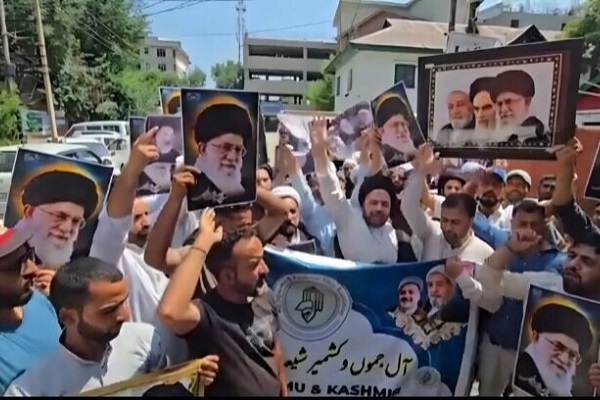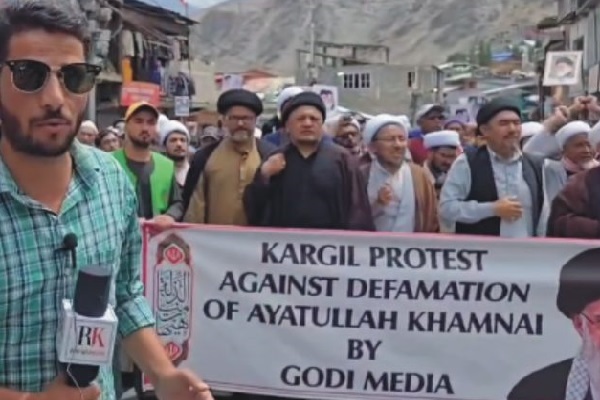Outrage Erupts in India Over Media Insult to Ayatollah Khamenei

The firestorm was ignited by a July 27 program aired by an Indian TV, which repeated insults originally circulated by foreign intelligence sources, including the Israeli spy agency Mossad. The broadcast, deemed offensive by many Shia groups, has triggered nationwide protests, official statements, and diplomatic criticism.
One of the strongest responses came from the Indian Ulema and Preachers' Association, which denounced the content as “a gross violation of ethical, religious, and journalistic standards.”
Hojat-ol-Islam Ibn Hassan Amlawi, head of the association, demanded both a formal public apology and legal action against the broadcaster.
He warned that such broadcasts, lacking in journalistic integrity, could endanger sectarian harmony and offend religious sentiments at home and abroad. The statement further argued that regurgitating narratives tied to espionage without evidence reflects “not only professional incompetence but religious insensitivity.”
Read More:
The controversy quickly spilled onto the streets. In Srinagar, Jammu and Kashmir, hundreds of Shia Muslims rallied in protest.
Organized by the Shia Association of Jammu and Kashmir, demonstrators condemned what they called “arrogant and irresponsible” reporting by India TV and Zee News Hindi. Protesters viewed the remarks as an insult not just to Ayatollah Khamenei but to the dignity of Muslims globally.
Addressing the rally, Hojat-ol-Islam Sheikh Mohammad Zakeri described Khamenei as the “intellectual, spiritual, and revolutionary guide of the Islamic Ummah,” warning that insulting him “crosses a red line that cannot be tolerated.”
He and other clerics, including Syed Tayyeb Razavi, stressed that the media’s job is to inform, not inflame, and called for immediate government intervention to prevent the spread of sectarian incitement.
Read More:
In Kargil, the Imam Khomeini Memorial Trust (IKMT) staged a large-scale march from Markazi Jama Masjid to Lal Chowk.
Participants held placards expressing solidarity with Iran’s Islamic Revolution Leader and chanted slogans against what they described as a broader international campaign to weaken Islamic leadership.
Speakers at the Kargil rally, including Haji Asgar Karbalai and Syed Ali Moosvi, argued that such defamatory media narratives are part of a long-standing effort by adversaries to undermine Muslim unity.

“The enemies of Islam have always targeted Muslim leadership,” one speaker said, noting that the community must remain vigilant in defending its values.
The backlash also extended to the diplomatic arena. The Iranian Embassy in New Delhi issued a formal protest, accusing Indian media of crossing the line between legitimate criticism and outright insult. In a statement, the embassy noted that certain reports “disrespectful to Iran and its great leadership” were not only fabricated but also damaging to India’s reputation.
Iran’s embassy reacts
The embassy warned that “irresponsible” and “baseless” reporting could affect historically strong ties between Tehran and New Delhi.
“The embassy fully respects freedom of expression and the public’s right to access information,” it wrote on X, “but strongly urges the Indian media to rely on credible and impartial sources and to refrain from spreading sensationalist and inaccurate content regarding Iran.”
“The Embassy expects that the Indian media will uphold journalistic integrity, avoid participating in external propaganda efforts, and contribute to strengthening the historical ties of friendship and mutual respect between the peoples of two great civilizational- states,” added the statement.
Source: Agencies



